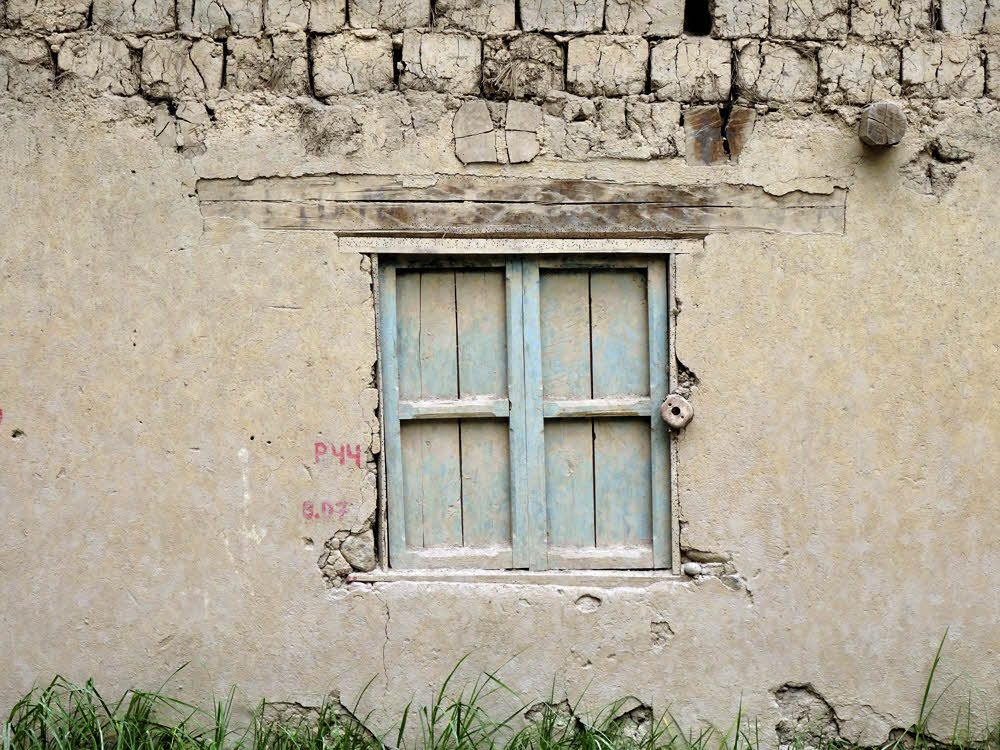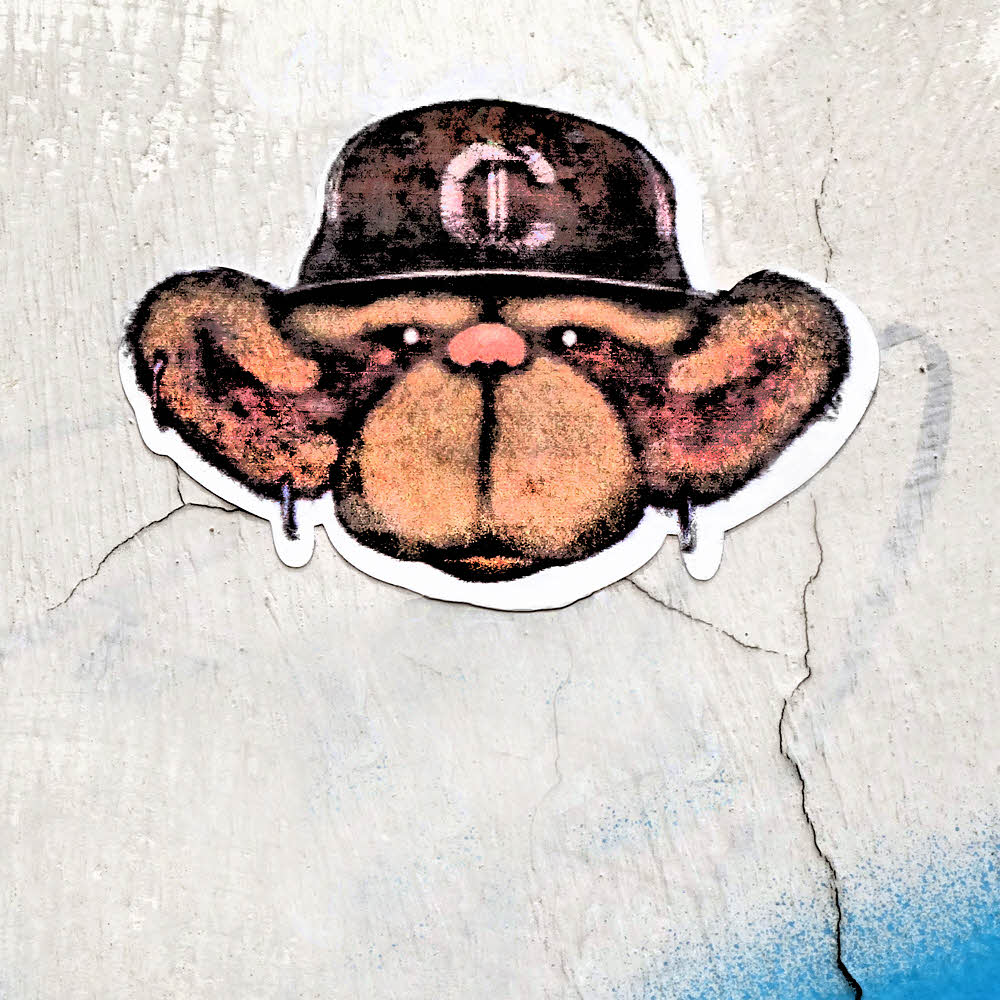
Cuenca is like a long exploration of Grandma's enormous old attic. To me. But what do I know?
Not that much, as world travelers go.
I've been to Canada a couple of times, along the southern border (or along the U.S.'s northern border, if you will). I've been to Bismarck, North Dakota, to Minneapolis, to Denver, and Sante Fe and Tucson, and I lived in Seattle for a while. Almost two years. Just two blocks north of Seattle's city limits. That qualifies. And Bellingham, Port Angeles, and Olympia.
So I don't get around. Not that much, but I've seen a bit. I've seen more, I think, than my former friends and acquaintances who never left Bismarck, who never left permanently anyway, or who left but didn't make it outside of North Dakota. For long.
It's odd what a backwater will do for you. A backwater place, a quiet corner of the world, like Bismarck, like North Dakota. In a way — odd to me. I had friends there who moved in from Chicago, for work, and became permanently affixed. They went native.
Maybe it was already in them, or maybe the place changed them. I don't know now and I never will. I've lost them. We have no more contact, not for 11 years, since they decided they no longer wanted to have anything to do with me.
In a sense that's good, though I'm still a dick. I'm not easy around people, even people I've had long-standing relationships with. Friendships, working relationships, relationships with relatives — all the usual. I'm still awkward, and sometimes I don't meet expectations, or I say the wrong things, or miss the cues, and come off as a dick. So I'm a dick. That's who I am. Stand back then.
But for a while, while I still had friends, I noticed something, especially with Nick and Patricia, my friends from Chicago. Though I never could stand Patricia. She came with Nick. Part of the deal, so you had to put up with her. But back to our story.
I returned to Bismarck after being away six years, and went to visit Nick. At that time I was still welcome in his home. I went there, was welcomed in, and sat down. Nick and I began talking. We picked up our conversation from six years earlier, as though we'd last seen each other just a week before, instead. The place is like that. Friendships last forever. People don't change much. They don't grow either.
That's one thing I noticed while visiting Nick and Patricia, and Norman, my former boss and co-worker, and John, former friend and former co-worker. And my parents. And others. I had changed and they hadn't. I had changed a lot and they had only gotten older, and were still talking and complaining about the same things as always. In 1993, Norman and John were still complaining about the same problems at work as when I'd left that job in 1975, and John had not worked there since 1974.
Cuenca is like that too.
I can feel it. I am not an expert, and nearly deaf, so I can't converse to any extent. But I've seen some evidence.
Two years ago my Spanish teacher chided me when I related a story of trying to enter a department store by walking in through the checkout aisle (you know — the passage between two cashiers — in the U.S. you go through backward when it's handy). "What if everyone did that?" she said, annoyed at my gringo ways.
I had been stopped halfway through by the cashier and made to go back "out" where I had to loop way around and enter the store's inner sanctum via the official entrada. Even though nothing was going on — it was slow that day. There were no customers trying to pay for things. The coast was clear. Which is why I decided to do it. But I had to go back and enter the right way. Because.
The whole city is like that. It is full of old buildings and old ways. The old is piled on top of the old, with some new sprinkled here and there. Both customs and things. Sprinkled. It is charming in a maddening way. I notice things nearly every day.
At one place I eat, when locals enter, they leave the door open. A staff member has to go over and close the door. I eat there three times a week. This happens four or six or eight times during each half-hour period I'm there eating. Every single day.
It's how things are done. They just go over and manually close the door again and again. They've always done it that way. It doesn't look like they'll change. Even with my help.
I tried.
I bought a pair of cheap door closers. Really cheap. Five bucks each. Simple springs that you can affix to a door at a hinge. I brought these along and when I had a chance to bring up the idea, I gave them to the restaurant's owner. He was happy to get them. This was eight months ago. He still hasn't used them. He and his staff prefer to stop what they're doing, walk over to the door, grab it, and close it. And to repeat this all afternoon, six days a week. Rather than to use what I donated, or find something similar.
I knew a cat once too, in Bellingham. It was the neighbor's cat but we were buddies, and the cat came to visit me every morning, climbing up the half-ladder, half-stairway fire escape below the back window. It had learned to do this on its own to get to the roof of a shed where it would nap. It continued this way to visit me, first climbing up as high as the roof of the shed, hopping off the step to the shed's roof, then immediately hopping from the shed roof back onto the stair it had just left, and then climbing up the rest of the way to my window. It worked.
But there was no reason the cat could not have climbed up the whole distance to my window without making a stop on the shed roof. Except that the first time the cat had gone up the ladder it went to the shed roof, so that was how it was done. The trip to my window got added later, and the roof detour remained a part of the routine, even though there was no point in it.
Got it?
Living here is like that.
"If it ain't broke, don't fix it" is probably the maxim I hate the most. Or it's at least close. "We've always done it that way" is another great one, and is interchangeable. I think I hate that version even more. It's rolling stupidity. My home town is full of it. My relatives were full of it. Everyone is full of it. People do what they've always done, because. Just because, you know?
Don't question. Don't cause trouble. Don't make us think. Why do you always have to make trouble?
Because I'm a dick. It's what I do. Though I'm not complaining about Cuenca. I like it here.
Because I don't have to be a part of it. I'm a perpetual passer-by. Because I can be. Because I'm rich.
I'm philosophically opposed to being rich, but I am, here. My income, relatively small by U.S. standards, puts me roughly in the top 10% in Ecuador, though there are many locals who have far more income than I do, but still I'm hanging with them, statistically speaking.
And since I'm rich, because I'm rich, I don't have to belong, so I don't have to play by the accepted rules, so I can be an outsider as long as I want, though I think I can understand some of how this all works. It works because people don't want to lose what they have. They're poor and isolated. The poor and the isolated are conservative and seldom think new thoughts.
I learned this from North Dakota.
Taking a chance is taking a chance. Taking a chance is dangerous. You don't want to do that. There is no reason to do that, if what you have gets you by. If what you have gets you by, then fine. You do that. But you don't get creative and risk it. You don't dare. You stay the course, conform, fit in, do it the way it's always been done, and then your children take over, and then your grandchildren, and on and on.
And Ecuador is not North Dakota. Which is why I'm here. Ecuador is much more of what I liked best and liked least about North Dakota. My friend John used to say (when he was still my friend and when we talked) that North Dakota was 20 years behind the times, and that was what he liked best about it. Ecuador, until the last half-century or so, was several hundred years behind the times, and I'm right in the middle of the slow region. Inland, in the mountains.
Along the coast things were never so slow, never so isolated. There was contact with the outer world. Ideas flowed. Cultures mixed. Change was a constant. Inland, no. Things stayed the same for half a millennium. Then they changed. But slowly.
OK by me. I like the climate. I wander around in the balmy bug-free weather at 8000 feet enjoying the sights. I like the peeled paint and cracked adobe walls, the broken pavement, the sounds. It's fine. Even the dust and the dogs. It's interesting, especially so since I don't have to be part of it. There is always something going on up and down the pedestrian-choked streets. I can use my imagination, just like I did exploring my grandmother's basement and my grandfather's garage. Looking at all the odd stuff and trying to imagine how people could live that way.
Which is what I'm doing here, in between trips out to lunch, or naps. So who am I to complain?


